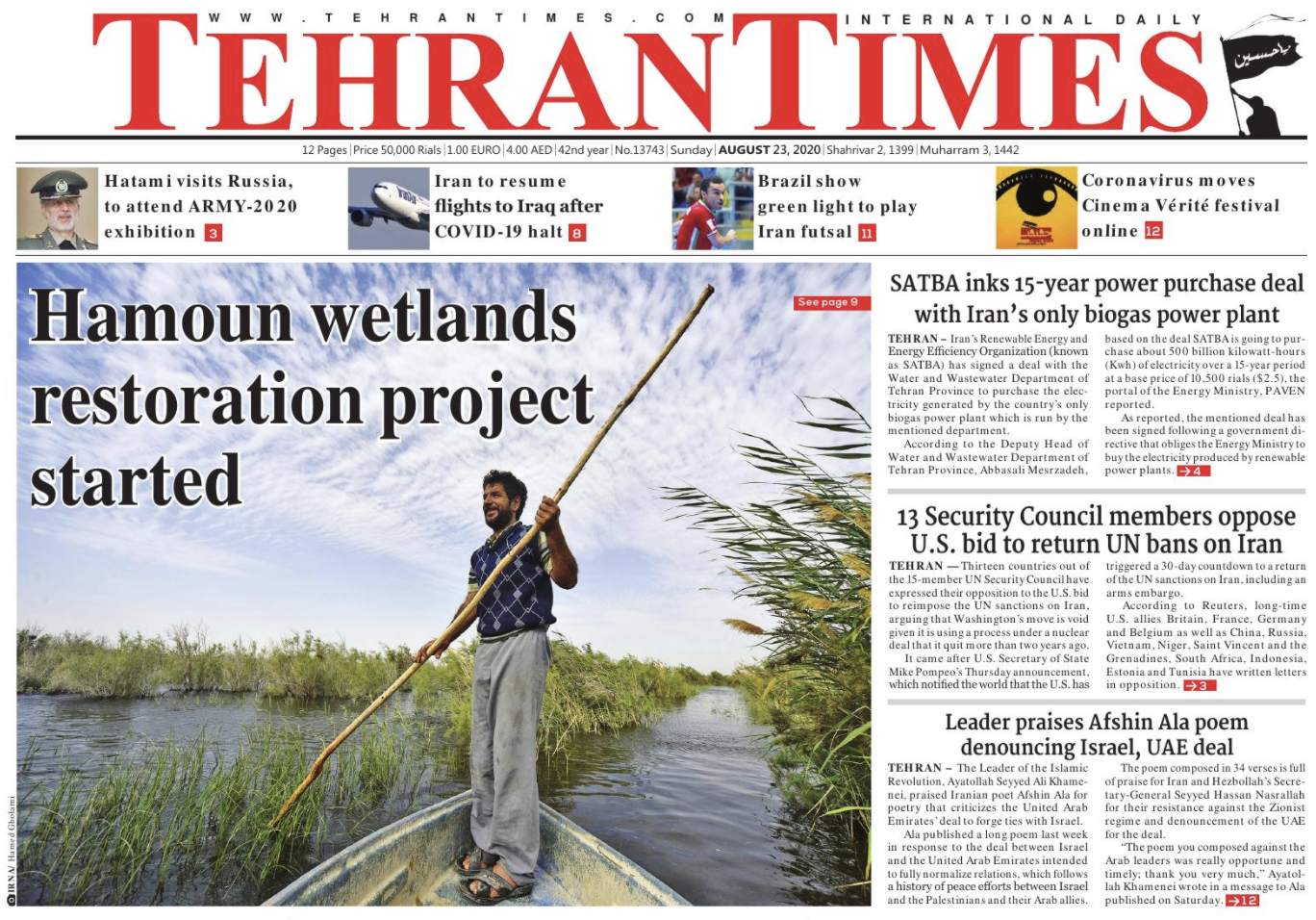ID :
574068
Sun, 08/23/2020 - 11:12
Auther :
Shortlink :
https://www.oananews.org//node/574068
The shortlink copeid
Hamoun wetlands restoration project started

TEHRAN - The European Union and the UN Development Programme started a joint project in cooperation with the Department of Environment of Iran to revive Hamoun wetlands in the country over the course of five years.
Representatives of the European Commission's department for International Cooperation and Development (DEVCO) and the UNDP attended an online meeting on Saturday for starting the project titled “improving the comprehensive management of natural resources for the rehabilitation of the wetland ecosystem and supporting alternative living in local communities in the Hamoun wetlands”.
The European Union has earmarked €10 million for the project, aiming to focus on the role and connection of people's lives on Hamoun wetlands as well as Hamoun's life on people's lives and at the same time be able to work on the protection of this wetland along with improving the living standards of the people around it.
The project will promote integrated natural resource management for the restoration of the wetland ecosystems and support alternative livelihoods development for the local communities in the Hamoun wetlands through enhancing capacities and coordination among local entities for improved management of Hamoun Wetlands, sustainable land, and water management, and climate-smart agriculture and alternative livelihoods.
A look at Iran’s map shows the extent of desert areas and the scarcity of water. The wetlands have always been a unique ecosystem of critical local, national, and international importance with ecological and socio-economic values. However, due to the acceleration of climate change, mismanagement of water resources, the use of traditional irrigation systems by local farmers, and lack of a formal agreement between Iran and Afghanistan, the once fertile wetlands have dried up drastically in the past two decades.
Years of natural and man-made disasters have severely impacted the nature and the livelihoods across the Hamoun wetlands. Many local businesses stopped their activities, leaving people without jobs. Crops have been compromised due to lack of rain and water, increasing the level of food insecurity. Sandstorms last longer causing a higher rate of respiratory and heart diseases. People leave their homes in search of areas that can provide for better livelihoods.





